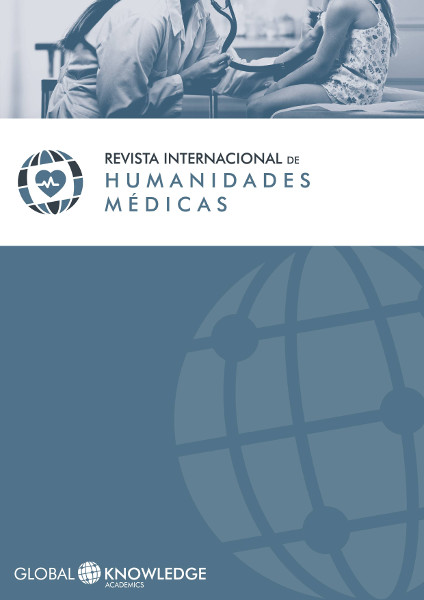Culturally Relevant Health Care: A View Based on Intercultural Communicative Competence
DOI:
https://doi.org/10.37467/gka-revmedica.v1.1295Keywords:
Communication in Health, Intercultural Communicative Competence, Cultural Diversity, Cultural CompetenceAbstract
The intercultural nature of health care requires strategies that give priority to effectiveness within interactions such as communication. This article emphasizes communication in a health context –in particular intercultural communicative competence–as a tool for culturally relevant health care, mentioning some important variables for effectiveness and adaptation in intercultural situations. In the same way, diversity and cultural competence and their relation to health care are highlighted. Finally, some questions are exposed concerning culturally relevant health care.
Global Statistics ℹ️
|
227
Views
|
194
Downloads
|
|
421
Total
|
|
References
Arasaratnam, L. A. y M. L. Doerfel (2005). “Intercultural communication competence: Identifying key components from multicultural perspectives”. International Journal of Intercultural Relations, 29, 137–163.
Arasaratnam, L. A. (2006). “Further testing of a new model of intercultural communication competence”. Communication Research Reports , 23, 93–99.
Arasaratnam, L. A. y S. C. Banerjee (2011). “Sensation seeking and intercultural communication competence: A model test”. International Journal of Intercultural Relations, 35, 226-233.
Cross, L. (1988). “Cultural competence continuum”, http://www.casbrant.ca/files/ upload/oacas/Reference_Material/Agency_Culture/Cultural_Competence_Continuum.doc (Consultado el 10 de diciembre de 2012).
Frati, A., A. M. Luzi y A. Colucci (2010). “Communication for health promotion: history and identification of effective methods”. Annali Dell Istituto Superiore Di Sanita, 46(4), 422-426.
Gibson, D., y M. Zhong (2005). “Intercultural communication competence in the healthcare context”. International Journal of Intercultural Relations , 29, 621-634.
Hudelson, P., N. J. Perron y T. Perneger (2011). “Self-assessment of intercultural communication skills: a survey of physicians and medical students in Geneva, Switzerland”. Bmc Medical Education, 11.
Kutalek, R. (2012). “Diversity competence in medicine: equity, culture and practice”. Wiener klinische Wochenschrift, 124(3), 3-9.
Moore, P., G. Gómez, S. Kurtz y A. Vargas (2010). “La comunicación médico paciente: ¿Cuáles son las habilidades efectivas?” Rev. Méd. Chile , 138 (8), 1047-1054.
Rimal, R. N. y M. K. Lapinski (2009). “Why health communication is important in public health”. Bulletin of the World Health Organization , 87(4), 247-247.
Rosenberg, E., C. Richard, M. T. Lussier y S. N. Abdool (2006). “Intercultural communication competence in family medicine: Lessons from the field”. Patient Education and Counseling, 61(2), 236-245.
Teal, R. y R. L. Street (2009). “Critical elements of culturally competent communication in the medical encounter: a review and model”. Soc. Sci. Med. , 68, 533–43.
Vilà, R. (2003a). “El desarrollo de la competencia comunicativa intercultural en una sociedad multicultural y plurilingüe: una propuesta de instrumentos para su evaluación”. En J. Perera (ed.), Plurilingüisme i educació: els reptes del segle XXI. Ensenyar llengües en la diversitat i per la diversitat. Barcelona: ICE.
Vilà, R. (2008). “La competencia comunicativa intercultural en adolescents”. Infancia y Aprendizaje, 31(2), 147-164.
Wallace, J., S. Bari, L. Reinders, J. Rainford, G. Gamhewage y F. Fleck (2008). “Health communication: a call for papers”. Bulletin of the World Health Organization, 86(7), 500.
Downloads
Published
How to Cite
Issue
Section
License
Those authors who publish in this journal accept the following terms:
- Authors will keep the moral right of the work and they will transfer the commercial rights.
- After 1 year from publication, the work shall thereafter be open access online on our website, but will retain copyright.
- In the event that the authors wish to assign an Creative Commons (CC) license, they may request it by writing to administracion@edulab.es









